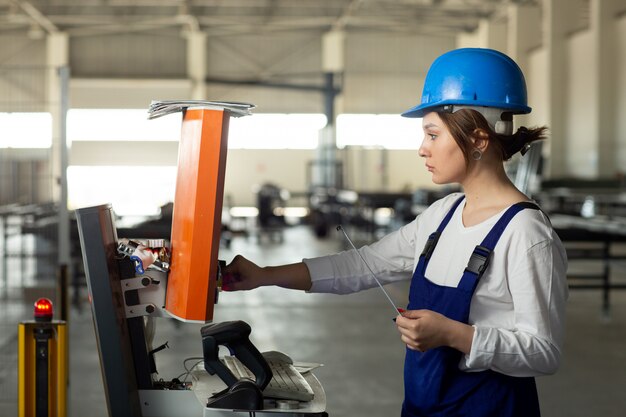In today’s manufacturing world, efficiency is no longer a luxury — it’s a necessity. Businesses seeking faster production, lower energy consumption, and greater precision increasingly rely on the hydraulic press machine. These powerful systems, driven by hydraulic pressure, deliver the strength and control needed to handle even the most demanding production processes.
Modern hydraulic press machines redefine not only product quality but also production speed and energy balance. In short, they have become an essential technology for any factory aiming to build a smarter and more efficient production line.
How Does a Hydraulic Press Machine Work and Why Is It Preferred?
A hydraulic press machine uses fluid pressure to apply force to materials. Unlike mechanical presses, hydraulic systems distribute pressure evenly and maintain consistent power throughout the entire cycle. This makes them ideal for shaping materials such as metal, ceramics, and plastics with exceptional accuracy.
In applications such as a tile press production machine, controlled hydraulic power ensures perfect surface quality and product consistency. Each cycle produces the same density and form, resulting in minimal waste and maximum quality assurance.
Simply put, hydraulic presses bring together strength, precision, stability, and energy efficiency — all in one system.
How Hydraulic Press Machines Improve Production Performance
In modern industries, competition often comes down to speed, cost, and quality.
Here’s how a hydraulic press machine helps manufacturers meet all three:
-
Consistent Pressure Output: Delivers equal force with every cycle, ensuring identical product quality.
-
Energy Efficiency: Advanced control systems reduce unnecessary energy use and cut operational costs.
-
Time Savings: Fast cycle press models significantly increase output capacity.
-
Low Maintenance Needs: Hydraulic systems are highly durable and require minimal servicing.
-
High-Performance Press Technology: Smart control panels enable precise pressure and speed adjustments, minimizing operator error.
These advantages not only improve production efficiency but also strengthen the company’s overall profitability and competitiveness.
Key Factors to Consider When Choosing a Hydraulic Press Machine
One of the most common mistakes manufacturers make is choosing a press solely based on its tonnage. In reality, several other factors determine long-term performance and return on investment.
Below are the main points to evaluate before purchasing a hydraulic press machine:
-
Material type and thickness
-
Required pressure capacity
-
Cycle time (especially with fast cycle press options)
-
Energy consumption level
-
Availability of spare parts and after-sales service
-
Machine size and compatibility with your production area
By assessing these factors carefully, you can select a system that not only meets your current production needs but also supports future growth.
Sustainable and Efficient Manufacturing with Hydraulic Press Machines
Sustainability in the industrial world isn’t just about protecting the environment — it’s about building long-term operational efficiency.
A hydraulic press machine helps achieve this balance by delivering maximum output with minimal energy consumption.
Modern high-performance press systems maintain consistent product quality while optimizing energy use, helping businesses reduce costs and carbon footprint at the same time.
Today, many manufacturers are upgrading their production lines by integrating hydraulic presses with automation systems. The result is faster production, improved safety, and greater workforce efficiency.
Redefine Your Production Power with RoeMac
At RoeMac, we engineer industrial solutions designed to deliver lasting efficiency.
Our range of hydraulic press machine models features advanced technology, durable structures, and fast cycle press capabilities — all built to enhance your production performance.
Transform your factory into a high-efficiency powerhouse with RoeMac engineering.
👉 www.roemacmakine.com
RoeMac – Where Power Meets Precision.

